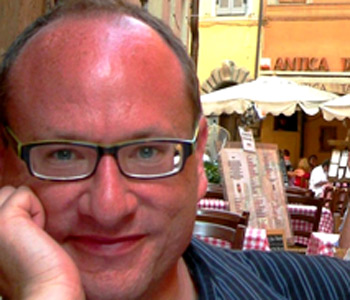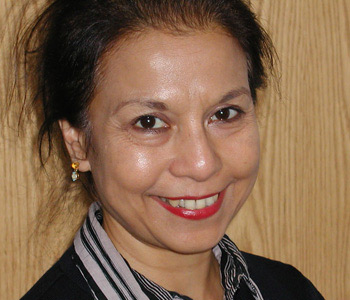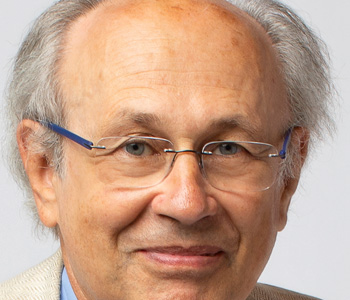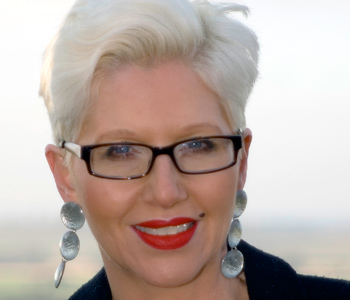Philip Pomper
Lenin's Brother: The Origins of the October Revolution
W. W. Norton
304 pages, 9 1/2 x 6 1/2 inches
ISBN 978 0393070798
Lenin’s Brother tells the tragic story of a brilliant young scientist and his turn to terrorism, and the history of the family that his actions devastated.
During his senior year at St. Petersburg University, Alexander Ulyanov joined a small group of terrorists with a hard core of suicidal young men, all of them, like him, students at the university. Ulyanov joined their plot to assassinate Alexander III less than a year after he received the university’s highest award for his junior thesis. Sasha (like his older sister, Anna, I often call him “Sasha,”) had just turned twenty-one when he was hanged with four other members of “The Terrorist Faction of the People’s Will” in May 1887.
A large part of the book is about student radicalism, the psychodynamics of a hastily organized group of young terrorists, their bomb-building and planning, the discovery of the plot by the Tsar’s security apparatus, the botched assassination attempt, and the trial that followed. This narrative engages the phenomenon of suicide terrorism. The other main narrative is about the Ulyanov family.
The patriarch of the family, Ilya Ulyanov, a beneficiary of Alexander II’s Great Reforms, inspired in his children a love of science and a service ethic. Ilya had risen to the post of Director of Schools in Simbirsk Province. The reaction under Alexander III ended his career and probably hastened his death in January 1886. The effect of Ilya’s death on the family is an important part of the story. It precipitated a crisis and aggravated the already strained relations between Sasha and his younger brother, Vladimir.
Four years Sasha’s junior, the teenager who would become Lenin had at first worshipped his older brother, but their relationship took an ugly turn during the summer of 1886. As senior male in the family, Sasha reluctantly had to play the role of disciplinarian; when Sasha returned to St. Petersburg for his senior year, he left behind an angry and depressed Vladimir. Sasha’s hanging at this critical moment in their relationship changed the course Vladimir’s life.

Many gifted marginal people came to the fore in the 1860s and 1870s Russia, and many of their progeny became important revolutionaries.
Lenin’s Brother follows my earlier work on Lavrov, Nechaev, Lenin, Trotsky, and Stalin. The book allowed me to revisit Lenin’s entry into the revolutionary movement—a fateful moment. Most historians agree that without Lenin, the October Revolution would probably not have occurred. In Lenin’s Brother I suggest that without Sasha there might not have been a Lenin.
I began to study radical thinkers early on in my career. I discovered that their personalities and emotions affected their thought, even the most elevated theory. Leopold Haimson’s 1955 work on the early phase of Russian Marxism, The Russian Marxists and the Origins of Bolshevism, had illustrated the effect of personality on theory and suggested a psychological approach.
But I found psychoanalytic thinking especially useful. This is the angle from which Lenin's Brother addresses the condition of the Russian Empire during the counter-reforms of Alexander III and the revolutionary ideologies, old and new, that animated Sasha and “The Terrorist Faction of the People’s Will.”
Russia’s 1880s were a transitional moment. The nihilist thinkers of the 1850s and 1860s and the narodnik theorists of the 1870s and 1880s still had great influence, but students were already reading Marx and Engels and creating hybrid doctrines. The nihilist exaltation of natural science and socialism made it quite easy to move to the theories of Marx and Engels, who offered scientific laws of history. However, the narodnik theorists had added something quite important: the belief that the most “developed” people, the students and practitioners of science, owed a debt to the tens of millions of peasants whom the regime had sacrificed for the sake of its power elite. The regime had unintentionally created an intelligentsia, a stratum of critically thinking individuals. Peter Lavrov wrote in an influential tract that precisely the most “developed” people owed a debt to the peasants, whose toil had paid for their education.
This sense of debt to the people, to the narod, had inspired small-scale efforts to educate the poor, but also a large-scale movement into the villages by student propagandists and agitators in the mid 1870s. Like the nihilists, Lavrov taught that socialism was scientific and that the intelligentsia could pay their debt by teaching the peasants about socialism and bringing about a socialist revolution. Other less scrupulous socialists emphasized science less and immediate action more. Michael Bakunin and Sergei Nechaev, for example, had written the notorious “Catechism of a Revolutionary.” They eschewed the need for scientific preparation and believed that agitation and terrorism might produce a vast peasant uprising.
The thousands of revolutionaries of the 1870s inspired by Lavrov and Bakunin had little success, partly because the peasants were less receptive than they thought, but also because the Tsarist police and gendarmes cracked down. This played into terrorism and the notion that in order to get their message to the people, socialists needed to force a constitution that would allow free speech—in effect, freedom of socialist propaganda. The assassination of the Tsar presumably would serve this purpose—hence the terror campaign of the People’s Will during 1879-1881. They successfully assassinated Alexander II on March 1, 1881, but suffered the almost total destruction of their organization. A few émigrés, most notably, Lavrov, sustained the theoretical orientation of the terrorist party in safe havens abroad and somehow managed to preserve the ethical orientation that attracted Alexander Ulyanov.
The assassination of Alexander II cut short the slow movement toward a constitution and produced instead the severe reaction under Alexander III. During the reign of Alexander II, despite the attempts to curb the growing and increasingly revolutionary nihilist subculture in the universities, students had emerged with their mutual aid organizations intact and the universities with their autonomy. Even during the 1870s the Great Reforms had continued and produced, among other things, a liberal bar. That, too, suffered from the acquittal of Vera Zasulich, who had wounded the Governor General of St. Petersburg in 1878, but liberal defenders remained for the trial of “The Terrorist Faction of the People’s Will.” Political assassins now had to face closed Senate tribunals. Alexander III ratcheted up the attack on student and faculty autonomy and produced the “prison-house” atmosphere described by Anna Ulyanov in her memoirs.
This was an era of counter-reforms, opposing the Enlightenment trends that had begun in the eighteenth century, trends that had survived the Napoleonic Wars, the reaction against the Decembrist rebellion in 1825, and the Westernizing efforts of Alexander II, who remained committed to a species of constitution even while he was being hunted down by the People’s Will. Although Alexander III had to modernize and to seek alliances in the West, he created a backward-looking regime and reinforced existing Russophile tendencies. The regime’s powerful security apparatus, with spies seeded throughout student bodies in universities, successfully thwarted efforts to recreate a strong terrorist network. In this unpromising setting, only the most desperate and suicidal students, most of whom came to the universities already radicalized, would form a terrorist conspiracy.
In the book’s last chapter, I try to explain Vladimir’s development, showing how family history shapes people and how parents and siblings interact in complex ways.
The Ulyanov family and its members, like all of us, encountered history and were shaped by it—even though they in turn shaped history more than most families. The wounds created by anti-Semitism forced the family into a false posture. The Ulyanovs’ marginality—part Jewish, Swedish, German, possibly Kalmyk—created special problems. They conveyed the psychological stigmata produced by the surrounding culture’s hatred. In very gifted people—and the Ulyanovs were gifted—the consequences can be large. The small window of opportunity created by the Russian Enlightenment following Russia’s defeat in the Crimean War quickly closed, but not before Ilya Ulyanov had been ennobled by a regime that, for a time, had appreciated enlighteners. Many gifted marginal people came to the fore in the 1860s and 1870s Russia, and many of their progeny became important revolutionaries.
In order to modernize, the Russian regime had to use despised minorities, but when it came to writing history, certain things had to be hidden. The Lenin cult prevented revelations about the family’s ethnicity until the late 1980s and glasnost. Stalin quite cynically suppressed any information that might taint Lenin’s image. While writing Lenin’s Brother, I was mindful of how ethnicity, nationality, group psychology, and individual psychology, produced lethal results in modern history. The small theatre of Lenin’s Brother opens into a much larger one.

Marxism downplayed ethics, to a point where one has to work hard to understand how it inspired young people. Some of Sasha’s comrades who chose terrorism did so because of an ethical foundation that they didn’t find in Marxism.
Lenin's Brother also sheds light on the contemporary theatre of suicide terrorism.
It is often said that terrorism is the weapon of the weak. The story of “The Terrorist Faction of the People’s Will” tells of an asymmetry of power between the Russian security apparatus and a small group of terrorists. It’s a common enough story, but the players differ and so do the stakes. Today’s stakes seem immeasurably higher, but to Ulyanov, human progress was at stake. One of the things that drew him to the narodnik theorist Lavrov was the notion of duty. Marxism downplayed ethics, to a point where one has to work hard to understand how it inspired young people. Some of Sasha’s comrades who chose terrorism did so because of an ethical foundation that they didn’t find in Marxism.
For Marxian true believers the answer lay in history: the dialectic of history would produce a just outcome. Marx and Engels assumed that the requisite consciousness was bound to appear, that revolutionaries would multiply. But they pushed things along in their way, and Lenin did in his.
Sasha, however, thought more like contemporary suicide terrorists, although he had a “scientific” basis for his act of self-sacrifice for the revolutionary cause. He was, after all, a biologist, and looked to Darwin for authority. Sasha got this justification for self-sacrifice and subordination to the group from Lavrov, too. Natural selection worked at the group level, not at the level of individuals. The very best people sacrificed themselves for the group and the group, itself a historical product, in turn produced the next stage of history. The epigraph for Sasha’s junior thesis was “What is real is historical.”
Today, not science and historical progress, but religion and nostalgia justify suicide terrorism. History is full of surprises, not always good ones.




We don't put paywalls. We don't distract you with ads. We don't sell your data.
Please help to keep this running!